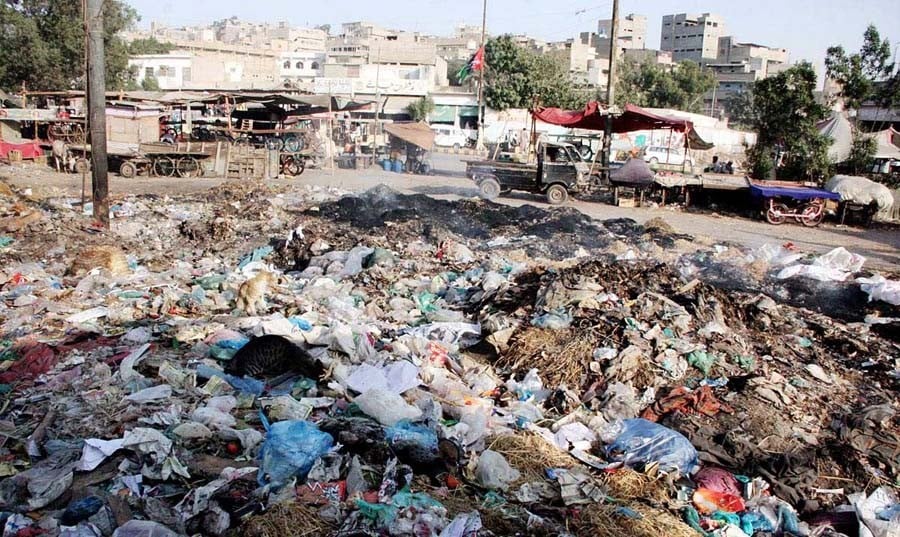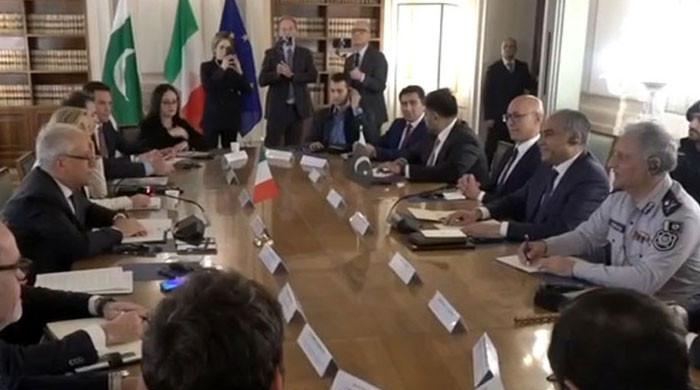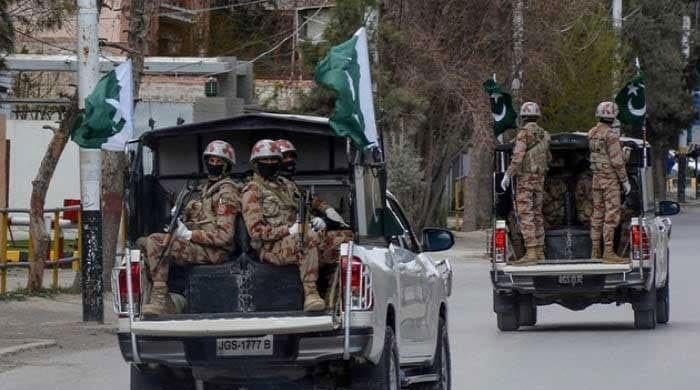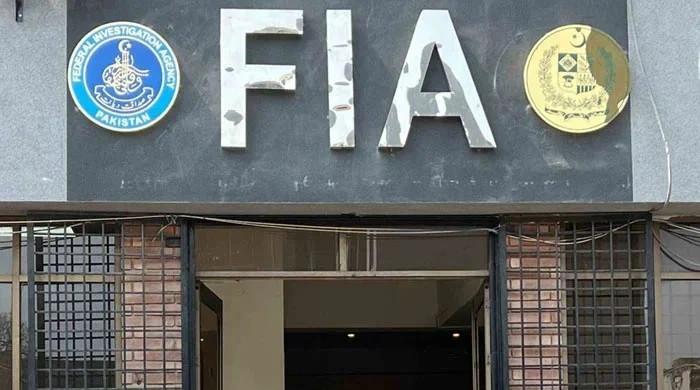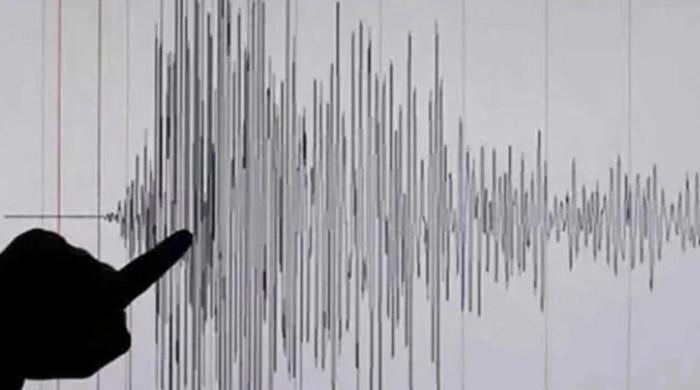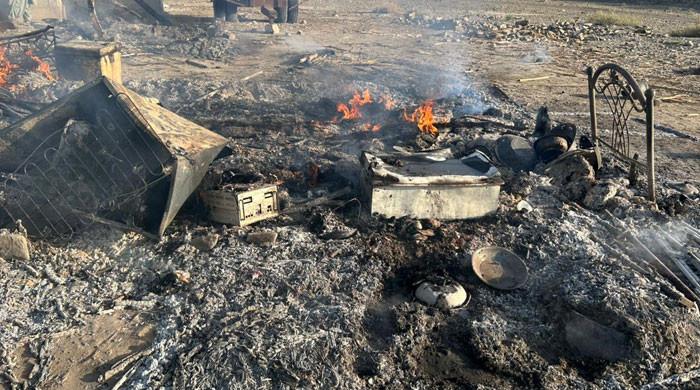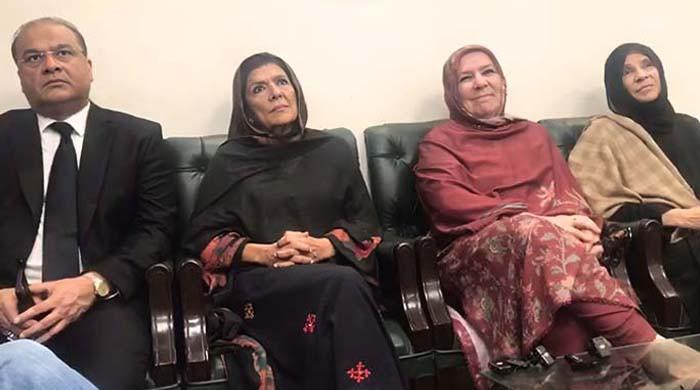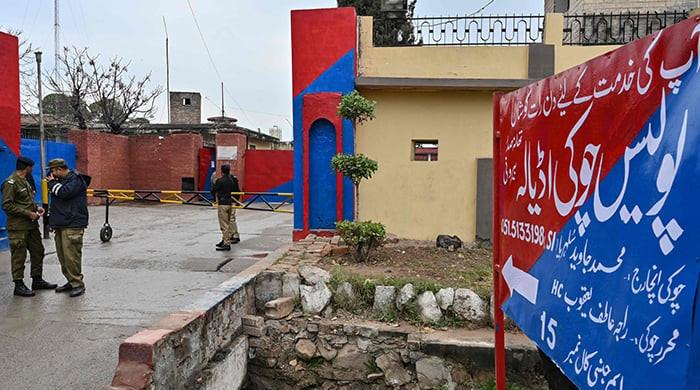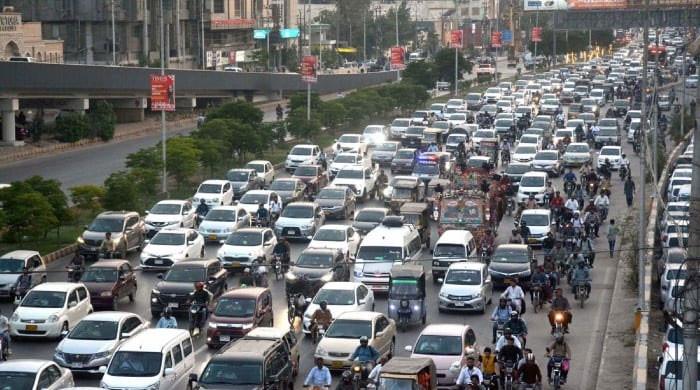Who is responsible for cleaning Karachi?
Karachi mayor remarked that cleaning the city was the responsibility of Sindh government
March 19, 2018
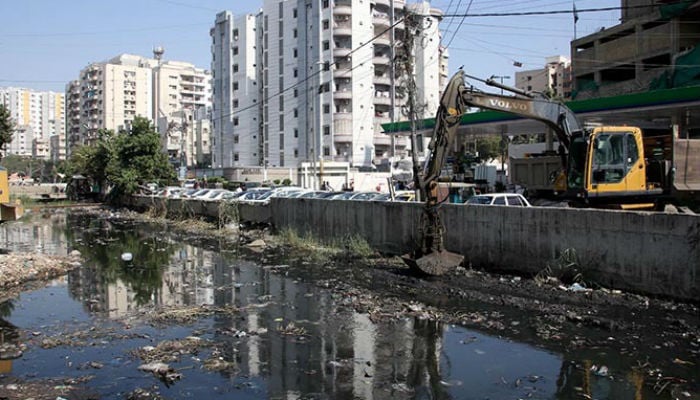
KARACHI: Streets dotted with garbage dumps have become a common sight in the provincial capital of Sindh. The mounting waste problem poses a threat to public health and environment yet heaps of garbage continue to be present alongside roads and under bridges in different locations in the metropolis.
In such a dire situation, the lack of ownership by city authorities has made the situation worse for the citizens.
Speaking about the problem, Karachi Mayor Wasim Akhtar remarked on Monday that cleaning the city was the responsibility of the Sindh government.
Akhtar remarks come in the backdrop of a Supreme Court's deadline to clean the city within a week issued on Saturday.
“This is not my responsibility, they (Sindh government) have not left this option with KMC,” Akhtar said while speaking to the media.
The mayor added that worldwide the cleaning of a city is a function which is with the municipality, however, this was not the case in Karachi. “I have given this statement in court as well. The chief justice said do whatever can be done.”
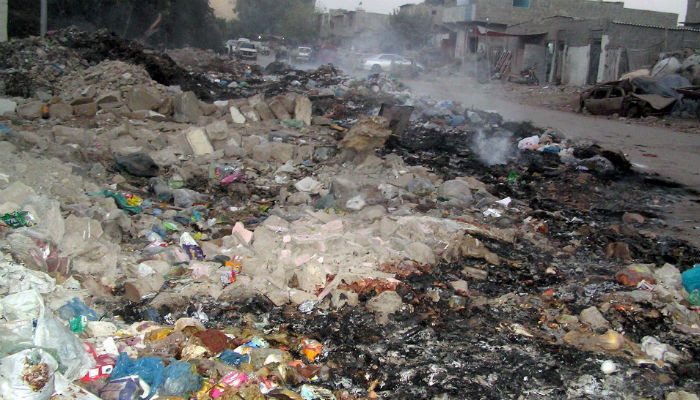
On the other hand, Chief Minister Sindh Murad Ali Shah remarked that the city has the facilities to pick up trash from different sites. He assured that the garbage will be picked up before Saturday. “The citizens must also play their part in this regard and restrain from littering on the roads.”
CJP gives one-week deadline to clean up Karachi
On Saturday, Chief Justice of Pakistan Justice Mian Saqib Nasir expressed anger over heaps of garbage in Karachi and ordered that the metropolis be cleaned within a week.
During the court proceedings, the CJP observed that Karachi’s cleanliness situation has deteriorated with time. “I don’t know how but clean the city. I don't want to see trash on streets of Karachi anymore,” he observed.
Heaps of garbage have clogged drains while trash piles are seen everywhere, he remarked, questioning whose job it was to clean the city.
Sindh Chief Secretary Rizwan Memon accepted before the court that about 4.6 tonnes of garbage was not being picked up in the city, adding that some roads in the city have not been cleaned since last six months.
Over this, the CJP remarked that Waseem Akhtar was right: this is the job of DMCS [district municipal corporations], which are subordinate to the Sindh government.
The chief secretary also informed the court the system for picking up trash in the city has been improved and garbage is being picked up.

